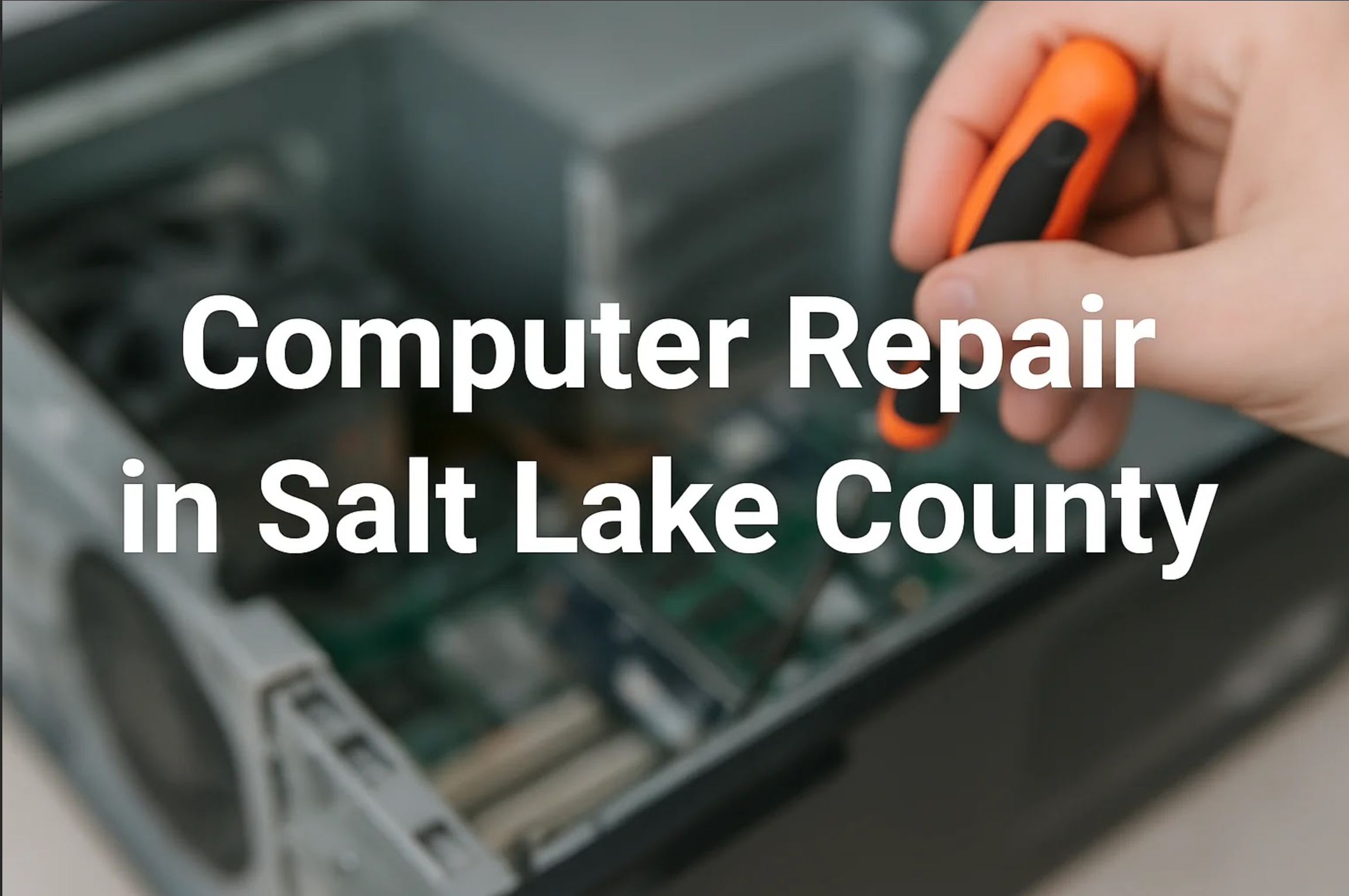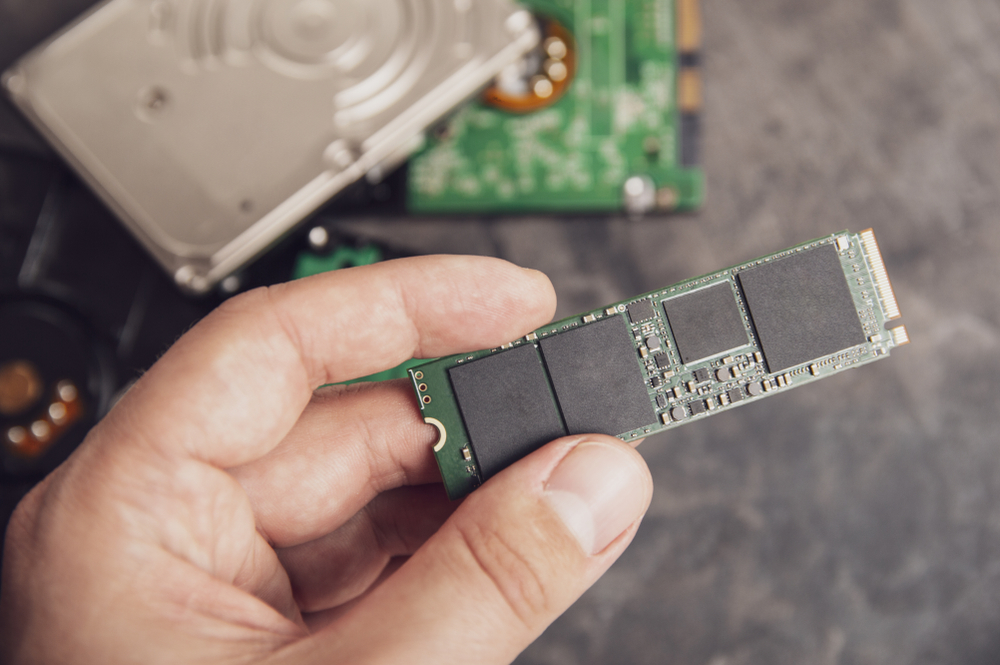Preventing Ransomware Attacks on Your Computer

Preventing Ransomware Attacks on Your Computer
The kinds of threats facing computer and internet users are ever-shifting in today's world, and one type that's on the rise in recent years and expected to continue this path is ransomware. What exactly is ransomware, and how can you protect any devices you utilize - plus the personal data and information you keep on them - from these risks?
Ransomware is a type of malware that encrypts your important data and demands a ransom for a decryption key. Staying proactive with cybersecurity best practices, security awareness training, and layered ransomware defense strategies can help ensure your devices are safe. In Utah, PC Laptops offers services to help protect against ransomware, recover data, and prevent it from spreading across devices on the network.
At a Glance: How to Prevent Ransomware Attacks
- Ransomware prevention involves reducing your attack surface and staying alert.
- Keep software and your operating system updated.
- Train end-users to spot phishing attempts.
- Deploy endpoint detection and response (EDR) tools.
- Back up files in multiple locations.
- Use a virtual private network (VPN) for secure connections.
- Limit access control to prevent network-wide infections.
- When in doubt, disconnect and call professionals like PC Laptops to contain the threat.
To prevent ransomware attacks, PC Laptops recommends keeping your operating system up-to-date, avoiding suspicious links or attachments, using strong endpoint protection like antivirus and firewalls, regularly backing up files (both on-premises and in the cloud), and securing your network with strong passwords and multi-factor authentication. Need more help? Read on.
Understanding Ransomware and Why It’s Dangerous
Ransomware is a type of malware that can lock you out of your files by encrypting them. It typically demands a ransom to provide a decryption key. The primary objective of the attacker is to extort money by threatening to delete or leak crucial data.
Notable ransomware attacks, such as WannaCry, have caused significant disruptions to organizations worldwide. Ransomware can spread rapidly across devices on a network, making early detection and quick responses essential.
This malicious software can enter your system through various means, including malicious email attachments, unsafe downloads, social engineering tactics, or vulnerabilities in outdated software. Once it infects a device, it can spread to shared storage devices, on-premises servers, and even cloud accounts that are connected.
Ransomware Prevention Best Practices
Ransomware prevention isn’t just about installing antivirus and hoping for the best. It’s about layered, proactive defense.
1. Keep Systems Up-to-Date
Cybercriminals often target vulnerabilities in outdated operating systems and applications. Install the latest version of your OS and software to patch known security holes. This is one of the most effective ways to prevent ransomware attacks.
How to stay current:
- Enable automatic updates for your OS and apps.
- Update firmware on routers and IoT devices.
- Replace unsupported software that no longer receives patches.
PC Laptops can review your system and ensure it’s up-to-date with the latest ransomware defense measures.
2. Use Strong Endpoint Protection
Endpoint security tools like antivirus software, firewalls, and EDR solutions detect malicious code before it can encrypt files. Look for tools that offer real-time detection and response.
Endpoint detection and response (EDR) provides:
- Continuous monitoring of endpoints.
- Fast detection of ransomware threats.
- Tools to limit the damage and prevent it from spreading.
3. Secure Your Network
Your Wi-Fi is part of your attack surface. Protect it by:
- Changing default admin credentials.
- Enabling WPA3 or WPA2 encryption.
- Disabling WPS.
- Using a VPN for secure connections, especially on public Wi-Fi.
A private network with strong security controls helps mitigate the risk of ransomware infection.
If you need assistance, PC Laptops Home Support can help set up secure networks and configure your firewall.
4. Backup Important Data
Even with strong defenses, it’s essential to have clean copies of your important data.
The 3-2-1 backup rule:
- 3 copies of data.
- 2 different types of storage (e.g., cloud + external hard drive).
- 1 copy stored offline.
Keep previous versions of files when possible so you can roll back to a clean state. PC Laptops’ online data backup service protects against ransomware and helps you regain access to your files without paying the ransom.
5. Limit Access Control
Only give users the access they truly need. Many ransomware attacks spread faster when accounts have administrative privileges.
Best practices:
- Use standard user accounts for daily tasks.
- Separate work and personal accounts.
- Remove unused accounts to reduce the attack surface.
6. Security Awareness Training
Human error is one of the biggest risks in ransomware prevention. End-users should know how to spot phishing attempts and suspicious links.
Training topics:
- How to identify malicious emails.
- Why you should never click unknown attachments.
- What to do if you suspect a ransomware threat.
PC Laptops works with both individuals and organizations to strengthen security awareness.
7. Detect and Respond Quickly
Ransomware defense isn’t just about prevention—it’s also about fast detection and incident response. If a device becomes infected, disconnect it from the network immediately to prevent it from spreading.
An incident response plan should include:
- Steps to disconnect infected devices.
- Contacting your IT team or PC Laptops for professional help.
- Using EDR tools to detect malicious activity.
Tabletop exercises—simulated cyber attack drills—can help ensure your team knows how to respond.
What to Do During a Ransomware Attack
If you are under attack:
-
Disconnect from the internet and any connected storage devices.
-
Do not pay the ransom unless absolutely necessary. Paying doesn’t guarantee you’ll get your data back and may make you more likely to be targeted in future attacks.
-
Contact professionals who can help with ransomware removal and recovery.
PC Laptops provides services to help contain ransomware infections, restore systems from backups, and improve future defenses.
Ransomware FAQs
What is ransomware?
Ransomware is a type of malicious software that encrypts your files and demands a ransom to unlock them.
How does ransomware infect my computer?
It often arrives through phishing emails, malicious downloads, or vulnerabilities in out-of-date software.
Should I pay the ransom?
Experts, including MS-ISAC, recommend not paying. There’s no guarantee you’ll get your files back, and paying can encourage further attacks.
Can ransomware infect backup files?
Yes, if backups are connected to infected devices or networks. Use offline backups to protect against ransomware.
How do I protect against ransomware long-term?
Implement cybersecurity best practices, use strong endpoint protection, back up files regularly, and stay alert for cyber threats.
For more detailed security advice, visit any PC Laptops location in Utah.
Why PC Laptops is Your Local Ransomware Defense Partner
PC Laptops is committed to helping Utah residents and businesses protect against ransomware. We offer:
- Ransomware protection setup and EDR solutions.
- Backup data Utah services to keep your important data safe.
- Security awareness training for end-users.
- Incident response and ransomware removal.
- Proactive cybersecurity best practices and security controls to limit the damage from future attacks.
We believe the most effective way to avoid paying the ransom is to stop ransomware before it can encrypt your files. That means being proactive, staying informed, and partnering with a trusted local team.
Final Thoughts
Ransomware is a constantly evolving cyber threat, but with proactive planning, layered security, and smart end-user behavior, you can prevent ransomware attacks and protect important data. By keeping your systems up-to-date, securing your network, limiting access, and maintaining clean backups, you reduce your vulnerability to ransomware infection. And if the worst happens, PC Laptops is here with the expertise and services to help you recover quickly, prevent it from spreading, and build stronger defenses for the future.



